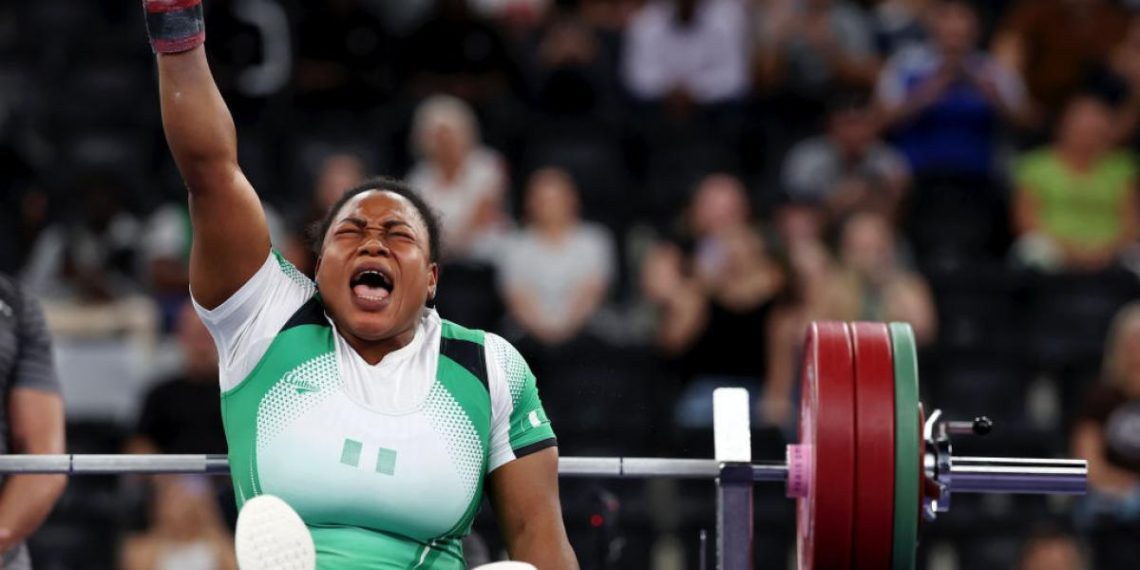Indeed, the glamorous 2024 Paris Olympics has come and gone, but the head-scratching performance of gargantuan disorderly conduct by the much-celebrated Nigerian Athletes was a bitter pill to swallow for millions of happiness-starved Nigerians.
Of course, many may argue in defence of the Athletes that they gave their all, referencing the usual fire brigade approach of the nation’s sports governing body in preparing the Athletes for the Paris event. Yes, they might have a point, but the magnificent performance of Nigerian Paralympians barely two weeks after the end of the Olympic games has defeated such a tenuous argument.
Historically, Sir Ludwig Guttmann founded the Paralympic Games and the Paralympic Movement. Before World War II, he was a leading neurologist in Germany, working at the Jewish Hospital in Breslau. In 1939, Guttmann fled to England as the war began. In 1944, the British government asked him to set up the National Spinal Injuries Centre at Stoke Mandeville Hospital, which treated many injured British soldiers.
Guttmann believed in the power of sport as therapy for people with physical disabilities, helping them build strength and self-respect. On July 29, 1948, he organized the Stoke Mandeville Games for British WWII veterans with spinal cord injuries, coinciding with the opening of the London 1948 Olympics. Those Games were considered the beginning of the Paralympic Movement.
In 1952, the Stoke Mandeville Games became international, with Dutch veterans joining. The Games continued to grow and by 1956, Guttmann was awarded the Fearnley Cup for his contribution to the Olympic ideal. In 1960, the Games were held in Rome following the Olympic Games and are now considered the first official Paralympic Games, though they only included athletes with spinal cord injuries. The first Paralympics featured 400 athletes from 23 countries.
The Paralympic Games evolved, including more disability groups by 1976, such as amputees and visually impaired athletes. By 1980, athletes with cerebral palsy were included.
Against all odds, Nigerian Paralympians have over the years written their names in history books since 1992 Barcelona Paralympics. At the Tokyo 2020 Summer Games, Nigeria won 10 medals (4 gold, 1 silver, and 5 bronze), and Nigeria won 7 more medals (2 gold, 3 silver, and 2 bronze) at the just concluded Paris 2024, bringing its medals to 87 in total.
Nigerian Para-powerlifter Folashade Oluwafemiayo clinched a gold medal, shattering two world records in the process. Her remarkable lift of 167kg did not only break her previous world record in the women’s 86kg Para-powerlifting category but also made her the first para-athlete in history to achieve such a stratospheric feat.
Oluwafemiayo’s accomplishment follows a series of strong performances by Nigerian athletes at the Paralympics. Flora Ugwunwa secured a silver medal in the women’s javelin F54 event, while Onyinyechi Mark won gold in Para-powerlifting with a record-breaking lift of 147kg. Esther Nworgu also claimed silver in the women’s 41kg Para-Powerlifting event, setting two new Paralympic records.
Eniola Bolaji made history as the first African to win a medal in badminton at the Olympic or Paralympic Games, achieving a bronze after defeating her Ukrainian opponent in straight sets.
By and large, the outstanding success of these Paralympians drew the attention of Her Excellency, the First Lady of Nigeria, Senator Oluremi Tinubu, who commendably rewarded the deserving Athletes in dollars.
That act, of course, was a clear shift from the norm of driving the Paralympians through the back door with dilapidated vehicles to their various destinations, without any significant concern about what might become of the Athletes down the line.

